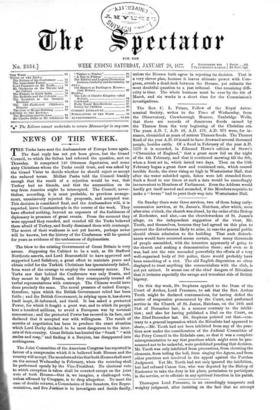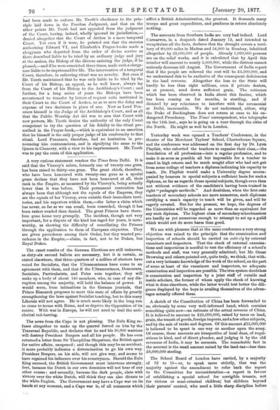Thereupon Lord Penzance, in an exceedingly temperate and weighty judgment,
after insisting on the fact that no attempt
had been made to enforce Mr. Tooth's obedience to the prin- ciple laid down in the Purchas Judgment, and that on the other points Mr. Tooth had not appealed from the judgment of the Court, having, indeed, wholly ignored its jurisdiction,— denied altogether that the Court of Arches is a mere temporal Court. Yet even if it were, he pointed out that the statutes authorising Edward VI. and Elizabeth's Prayer-books made a clergyman who departed from the order of divine service as there described liable to be tried by an ordinary judge and jury at the assizes, the Bishop of the diocese assisting the judge, if he pleased,—and if he were convicted three times, made such a clergy- man liable to be imprisoned for life. The intervention of a temporal Court, therefore, in enforcing ritual was no novelty. But even if Mr. Tooth maintained that he was only liable to be tried by the Court of his Bishop, an appeal, as he well knew, always lay from the Court of his Bishop to the Archbishop's Court ; and further, for a long series of years the Bishops have been accustomed to transfer by letters of request suits instituted in their Court to the Court of Arches, so as to save the delay and expense of two decisions in place of one. Now as Lord Pen- zance himself is the Judge of the Archbishop's Court, and as all that the Public Worship Act did was to arm that Court with new powers, Mr. Tooth denies the authority of the only Court competent to try the question of his fidelity to the ritual pre- scribed in the Prayer-book,--which is equivalent to an assertion that he himself is the only proper judge of his conformity to that ritual. Lord Penzance, therefore, had no hesitation in pro- nouncing him contumacious, and in signifying the same to the Queen in Chancery, with a view to his imprisonment. Mr. Tooth was to pay the casts of this application.



































